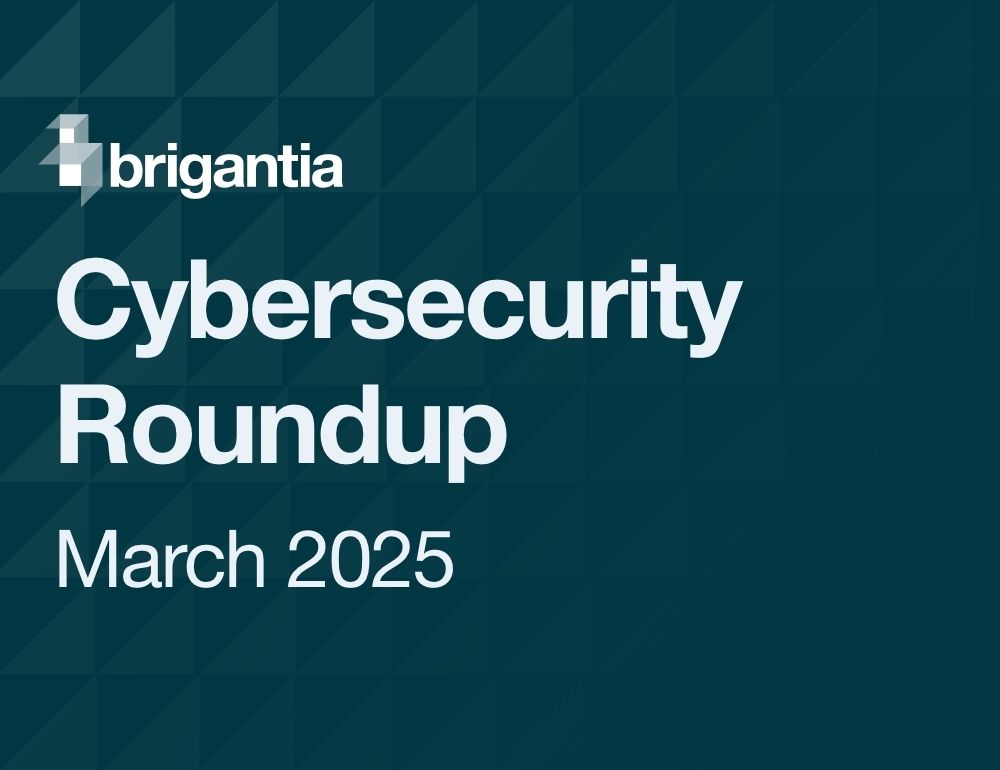As we head into a new year, all businesses should look closely at their cybersecurity, evaluate their 2023 strategy, and ensure they invest in robust defences. Since the introduction of AI, hackers have been leveraging this tool to create sophisticated, fast, and authentic-looking cyberattacks. And it's only set to increase.
For online businesses, this is even more alarming. Conducting business activity over the internet means all your valuable information and data are a prime target.
Prevention will always be better than cure. At Brigantia, we partner with industry-leading cybersecurity vendors to offer our partners the latest products and services to protect organisations against evolving threats.
So, what could online businesses be doing to maximise their security defences? We've put together our top tips for 2024.
Our top tips checklist
Stay compliant
Whether handling employee data or customer financial information, staying compliant and ensuring a business meets financial obligations is crucial.
It could be GDPR laws, regulatory legislation, or PCI compliance, but left unattended; you could find yourself liable to fines or prosecution for failure to have airtight processes and defences in place, which is why sufficient data backup and disaster tools are essential, amongst other cybersecurity products. More on that later.
Deploy airtight network security
Online businesses run activity and house data over a network, and the impact of a network breach can be catastrophic. Not only is sensitive information at risk of theft, but company operations are down until the problem is resolved.
This heavily impacts your team, bottom line, and business continuity. Types of network security include firewalls and remote access VPNs, which are especially useful for remote teams.
Password management
It feels like a given, but many businesses need to pay more attention to the importance of strong password management. In general, there are some good housekeeping rules for employers and employees, including making passwords difficult for hackers to decode and using a mix of letters, symbols, numbers, and three randomly selected words. However, it is becoming increasingly evident that this isn't an airtight solution, and organisations are looking for tools to make password management robust.
Password management solutions like Keeper are becoming a fundamental part of cybersecurity defences.
Invest in security awareness training
Password management is the tip of the iceberg when it comes to ensuring individuals within a business are protecting themselves against cyber threats. By providing security awareness training, employees can prevent disasters before they happen, whether knowing how to spot a fraudulent website or being vigilant with emails.
Cybercriminals rely on human error and manipulation, often with social engineering attacks that prey on our nature. But employees needn't be a blind spot in an organisation; they can be key players in a cybersecurity strategy. Training your team using tools like KnowBe4 is a worthy investment.
Implement strong disaster backup and recovery
Choosing a data backup and disaster recovery system will ensure that in the event of a successful attack, data are safely stored in off-site servers. It helps mitigate loss or theft, preventing damage to a business's reputation and avoiding the legal ramifications of compromised data.
Setup HTTPS protocol
With websites often the beating heart of online businesses, it's essential to drill down into the security risks. Opportunist hackers can hack standard unencrypted HTTP websites. Still, by introducing HTTPS (HTTP + SSL), you can ward off hacking attempts with encrypted data that are secured between the server and the web browser.
Consider cyber insurance
Do online businesses need cyber insurance? Legally, no, but in practice, yes. Awareness training and strong cybersecurity products should minimise the risk of a claim, but ransomware attacks and phishing attempts are increasingly sophisticated.
Cyber insurance protects organisations against the financial loss or legal costs of a cyberattack, which could be the difference between surviving or folding.
Cybersecurity housekeeping
Imagine a scenario where you miss the deadline for renewing your domain name, and it expires. This makes you vulnerable, as opportunist hackers can recreate your website and send spam emails to your customers, which damages your business and is a logistical nightmare for your relationship with your customers.
Ensure proper housekeeping for important dates so you know what's coming up and when.
Conduct a permissions and admin audit
When hiring new employees or contractors, you want to ensure they're trustworthy. Background checks are important for keeping your data and business information secure from the inside. You'll want to regularly audit your permissions and administrator access across apps, software, and logins.
Deactivate old employees, remove access to cloud accounts, financial platforms, and employee data centres, and change admin permissions.
Keep a record of your hardware
As an online business, it might feel like you can spend less on tracking your tech. However, all companies have some degree of hardware, and this inventory requires effective management and monitoring. Devices are the gateway for cybercrime, so enterprises should ensure they have a 360 view of all technology.
Keep a log of devices, serial numbers, users, and admin passwords.
Final thoughts
For every business, especially online enterprises, effective and well-organised cybersecurity isn't an option; it's a necessity.
Hackers are clever, and they're only getting smarter. But there's plenty that individuals and organisations can be doing to prevent an attack. Whether following cybersecurity best practices, implementing awareness training, or investing in high-quality firewalls and security products, you don't have to be one step behind hackers in 2024.
At Brigantia, we have many resources to keep you connected to the evolving cybersecurity landscape. Visit our resource page. Our team is always on hand for support and advice. Get in touch today.






